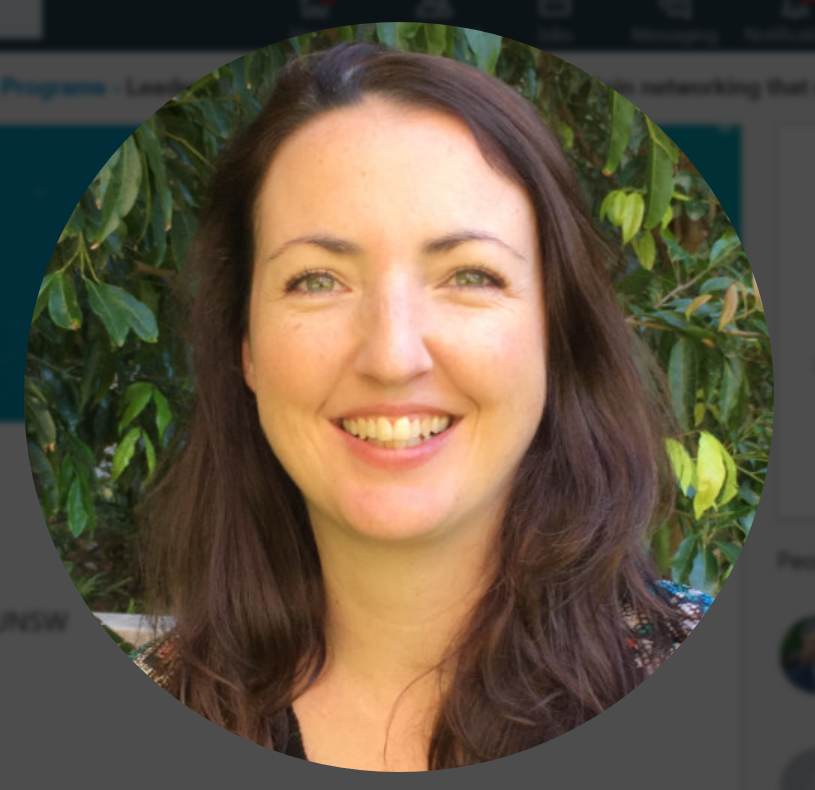‘Engaging in training’ an interview with Katie Yamaguchi, UNSW
Interview by Lynn Milburn, Coordinator, Peer Support Programs, Deakin University
Katie Yamaguchi, UNSW’s Peer Mentoring Project Officer, appears to be in a role that was made for her. About 12 years ago she was a UNSW student studying international studies and international relations (she loved traveling and cultures). In her last year of study she became a volunteer mentor for international students. All went well. Once she had finished her degree, something told her she should check UNSW’s job site although she normally didn’t check it. However, she listened to this mysterious “voice” and checked the site. When she did, she saw before her the perfect job: Student Development International – Project Officer. She applied for the job and got it. She loved the face-to-face contact she had with international students and that the role included supporting international students when they first arrived and helping them to settle in to Sydney and adjust to Australian culture. After four years in this role, she moved into peer mentoring at UNSW and her current role.
Katie works with 28 peer mentoring programs that support new students. These programs operate across departments and faculties and within faculty schools. She supports the program coordinators (many are student volunteers and they change yearly), by providing training for mentors and central evaluation for both mentors and mentees. She also collects data, prepares reports and provides networking opportunities for the peer mentoring program coordinators. In additional to this, Katie also manages two peer mentoring programs (Mature Age Mentoring Program, and the Midyear Mentoring Program).
Katie said she is currently focusing on training, and as she explained what she does in relation to training and where she hopes to take it, I wrote as quickly as I could so I would not miss anything! She explained how the mentor training, which she has been running since 2014, used to be for six hours on one day. Since then, the training has evolved based on feedback. Key issues (sessions were too long and inaccessible for some) highlighted the need for more flexibility to increase access; Katie also wanted to make it more efficient overall to reduce staffing loads.
Enter blended learning. Katie’s evolved mentor training course now requires a one-hour online component followed by a three-hour face-to face session. The online session provides information which can be debriefed in the face-to-face, while the face-to-face focuses on the more practical, social needs of mentor training, e.g., planning sessions, using skills in scenarios, group work and facilitation practice. Katie went on to say that her role is not only about supporting mentors to support new students, it is also about developing mentor skills and helping them understand how they can use those skills in the workplace (i.e., seeing that the mentors are reaching their own goals). Like the blended learning approach used for the training program, the training program’s objectives are also “blended”: While it trains mentors to effectively support mentees, it also trains mentors to build their own skills for their own purposes and to understand how to use them in contexts beyond mentoring.
In fact, Katie is developing a MasterClass which talks mentors through the skills they have learnt and helps them learn how to effectively explain these skills to others, for example, at job interviews. While Katie mentioned that there is currently a smattering of such MasterClasses in some mentoring programs, she aims to provide a formal UNSW MasterClass so all mentors can have access. Katie explained that her area also includes leadership and skills development programs, so these MasterClasses fit nicely.
Katie also was very enthusiastic about the use of digital badging, enabling students achievements to be more recognisable. She wants to develop training packages which cover peer mentoring essentials and include in-depth, optional components that mentors can choose depending on their interests and needs, e.g., event management. Additionally, as there are many other relevant training workshops that are currently running at UNSW, such as Mental Health First Aid, Disability Awareness, ALLY Training, Katie wants to use digital badging to link these trainings to the mentor training portfolio, to demonstrate the skills mentors develop in different areas of focus.
Thank you, Katie, for sharing so many of your engaging training feats!


Leave a Reply